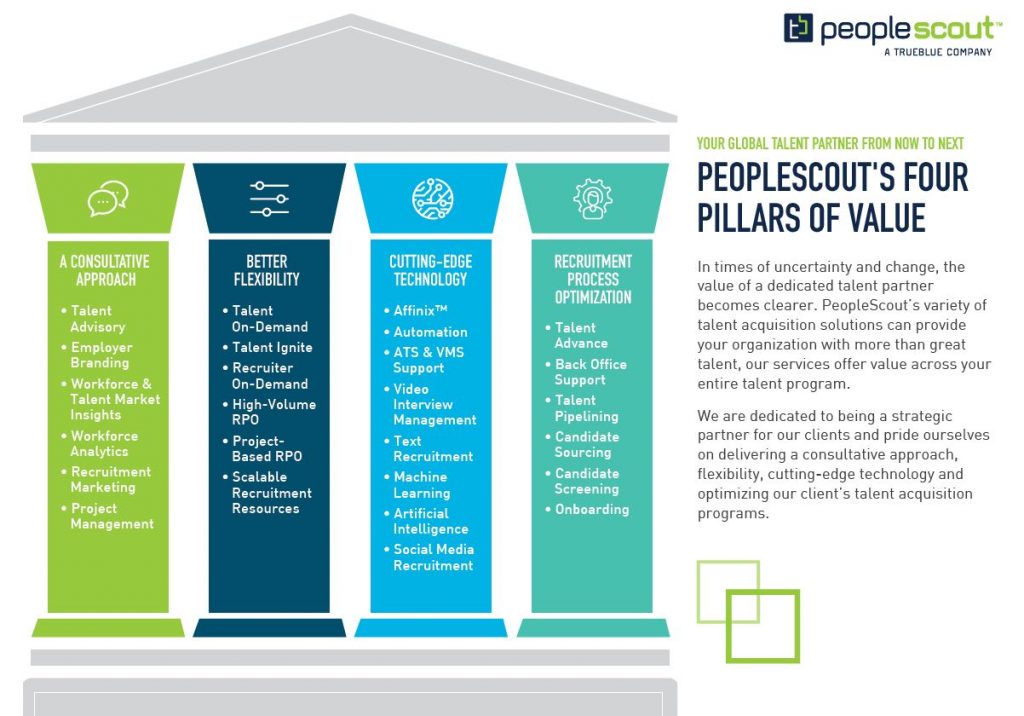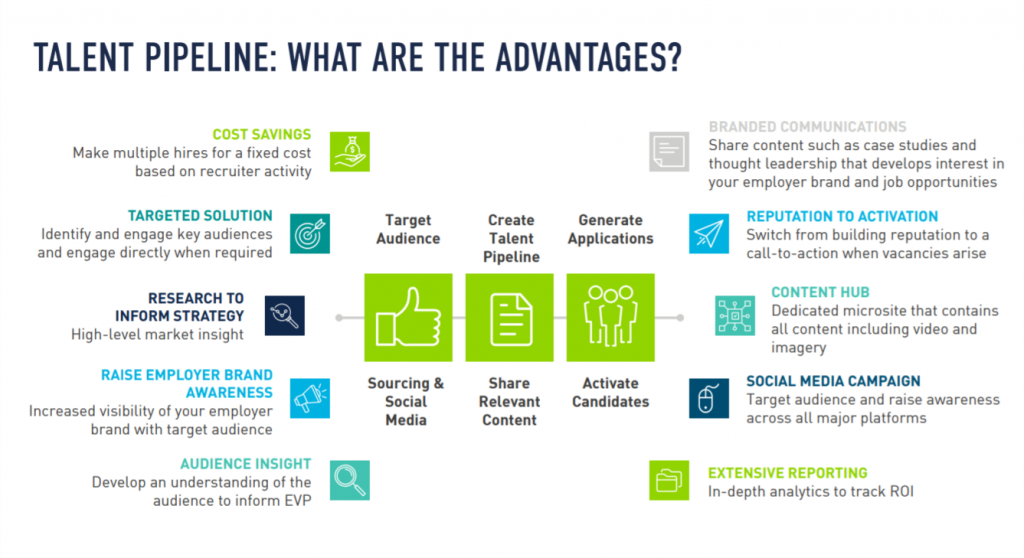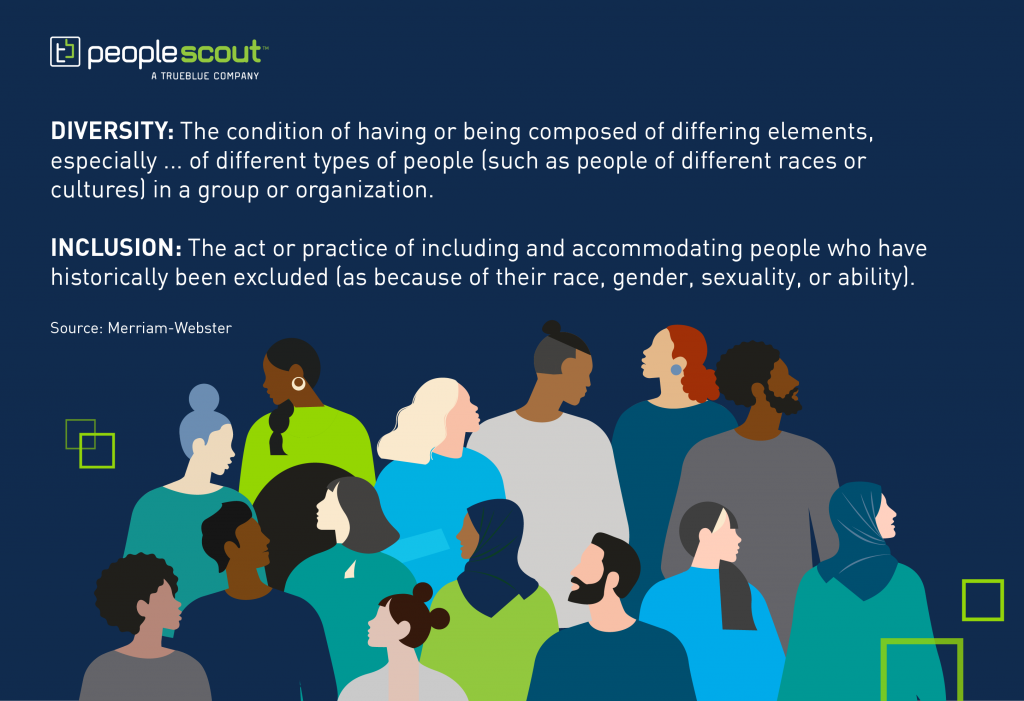This year, many organizations have had to rethink the strategies and methods they leverage to source and recruit talent. As the year ends and good news regarding vaccines brings us all new hope, you might be wondering what talent acquisition success looks like post-2020?
One of the first steps in preparing for the changes ahead in the talent landscape is to establish an efficient method of sourcing talent. Building a global talent pipeline strategy is an effective way to source and recruit the talent you need.
More technology is available than ever before, designed to making global sourcing and talent acquisition more efficient. Video interviewing makes it simple to interview candidates remotely, virtual reality technology can provide candidates a realistic look at your office without ever stepping foot inside and a variety of solutions for remote work mean that candidates can work from anywhere.
I recently had the opportunity to join Hiretual for their webinar Sourcing Beyond 2020: Building Global Pipelines for Adaptive Work. During the live Q&A, I discussed how to tap into the global talent pool, ways to attract talent faster during the Great Rehire and how to go about engaging with candidates for current or future roles.
In follow up to the webinar, I wanted to provide some additional insights, observations and takeaways from the current talent sourcing landscape and provide you with actionable advice to help you source talent in 2020 and beyond. You can also watch the recorded webinar on the Hiretual website.
My Three Biggest Sourcing Takeaways from 2020
Maximize Your Investments
At the onset of the pandemic, many organizations had to make hard personnel decisions. As a result, teams are lean, but sourcing systems and contracts are still in place, so companies are looking for ways to use what they have. When you have a lean team, it is really important to invest in sourcing tools that allow them to produce more with fewer people. And, if your team is in a position to have any downtime, they can use it to get the most out of the current systems, processes and plans they have today.
It is becoming more important to reach out to passive job seekers who possess the skills you need, as relying on those actively applying cannot be your only channel. At PeopleScout we have invested heavily in technology and sourcing tools with our proprietary Affinix™ platform. Specifically, it has AI sourcing to find passive candidates through various online channels and match skills against your internal databases as well. This augments your existing team and frees up people to handle the most important tasks.
Many of our clients are sophisticated technology buyers and they are also investing in some best in breed AI sourcing tools. In fact, many of them use Hiretual and so our recruiting teams have had access to use that as well, augmenting our strategy and providing the lift needed as we prepare for continued increases in hiring (The Great Rehire).
Get Ahead Where You Can
Focus on best practice building of consistent, authentic and meaningful communication, identifying talent locations and managing to keep former employees, alumni and prospects engaged. Use the sourcing tools you have, maximize your CRM potential, and keep the conversation going. This will ensure that when you are ready to hire candidates are aware of you and open to talk. On the call, Stockpiling was mentioned. Take a page from Executive search firms – research, map and have your ‘first 50’ calls or communication candidates ready to be engaged. Start with drip marketing on the ones you can.
Push relevant, authentic content to them around the company, its future, plans and opportunities. Make it engaging and not just ‘here’s a job.’ Talk about the company, it’s vision, plans for recovery or success. Looking for a job is a lot like looking for a home – when you decide it’s on, it’s on. It’s not often a constant search. Something triggers it and companies want to be top of mind when it does. Drip marketing and candidate engagement go a long way when the pipeline becomes hiring.
Be Flexible in Your Approach
With uncertainty in the talent market due to COVID-19, recovery efforts and just general unease after a big life-changing event – recruitment has become more unpredictable.
Most companies aren’t providing guidance on revenue and hiring initiatives because of this. Company goals are going to change, and so will hiring efforts to meet those goals. Your sourcing engine needs to be adaptable and ready to go as quickly as you can, but also be nimble enough to flex.
Using automation tools (like those for AI sourcing or lead generation) as well as easy to update marketing and drip marketing campaigns can take the weight off of your sourcers, who can focus on strategy and research for future needs and on how to go to market for these candidates.
How Should Enterprise Hiring Teams Structure Their Global Sourcing Process?

Processes will need to be nimble and teams will need to be tuned in closely to hiring needs. Just like sales teams need clear goals and a plan to execute successfully, the closer talent acquisition is to an organization’s strategic objectives, the ‘tip of the spear’ sourcing team can be ready and focused on building early talent communication and networking.
Now, with the pandemic upending a lot of the traditional norms of work – physical locations, workplace flexibility from home, less commute, and a broader candidate pool for most industries, sourcing has to shift from their traditional method of ‘going where they know’ to rethinking where great candidates are and how to adapt and qualify them. Having more candidates doesn’t make sourcing easier; while it sure helps, it also presents new challenges for teams and organizations.
On the flip side of this coin – companies that cannot have virtual employees – face a different type of challenge. First, combating the notion that work from home is for everyone and sourcing candidates that will want to work onsite. Second, the competition for these individuals will intensify as the ‘Great Rehire’ kicks into full steam. Getting ahead of this and doing everything you can to map that talent and build rapport early will go a long way to getting ahead of a rapid upswing in hiring volumes.
Both scenarios also present a unique opportunity for recruitment and sourcing teams. Often, we source where we know – we look for carbon copies of the person we are replacing or the last people we hired (which is a lot to unpack for another time – diversity, inclusion and attraction anyone?) but with this, there will be large talent groups displaced that have skills and abilities but will not return to their previous roles.
An example of this is Flight Attendants. All major airlines, worldwide, have reduced their staff by enormous numbers. There are hundreds of thousands of candidates looking for work in a new area. For the savviest of sourcing and recruiting teams, there’s a huge opportunity here to bring a new candidate type to the table for roles. Knowing where to find them, how to engage them and how to bring them to the table for your hiring community will be extremely important and a massive opportunity for them.
How Enterprise Recruiters Can Set Themselves Apart from the Competition
We’re all on the edge of what’s being called the ‘Great Rehire.’ We know that an average of 70% of the workforce has and will continue to work uninterrupted both virtually and in the office. That leaves a large, displaced group of candidates that will either return to their current careers or new ones. When that happens is anyone’s guess.
What teams can do now is a lot of the above – optimise your recruitment channels, build compelling drip marketing and attraction packages, leverage smart scouring tools, and start your research now to be sure you are ready when the hiring begins. To the TA leadership, if you aren’t already involved in future planning, get ahead of it now. This has the potential to be a massive rehire, at least we all hope, and we don’t have a precedent in modern hiring to compare. Be ready to be nimble.
Choosing the Right Scouring Tools and Technology
There has been a lot of debate in sourcing about how technology will either eliminate the need for sourcing (just like it will eliminate the need to interview) or will it augment. I’m firmly in the camp that technology, for the near to mid-future, will be an augmentation of human efforts.
So, now is the time to look at your sourcing tools and tech stack and eliminate waste and optimize your process and efforts. Take your sourcing tools and position them for the future, look at your organization and your needs and choose the tools that will help accelerate your hiring teams through the process.
We have to assume, as we always do in recruiting, that hiring will come faster than we can prepare for. Choose and implement tools that maximize your sourcing ability and help the team be faster, better and smarter. Tools have the ability to augment your team, integrate with your CRM to ensure you can automate attraction and marketing, and report back on the success rate of your efforts.
Look at your reporting state now – can you measure each key piece of the process to see where you can tweak, adjust, or shift to get better results? Best in class TA teams have learned to measure the entire funnel – not just for speed of process but also for efficiency or ‘friction.’ The faster you can get to market, identify and/or attract, and bring that candidate through an impactful experience will help you both hire and retain great people. To do that, you need to focus on the holistic view of your process and be sure you can measure it effectively.
Planning Your Future Workforce and Building Robust Talent Pipelines
At PeopleScout, we see it across our client base and I’m hearing it from friends and former colleagues; we know we need to prepare; we know we need to get ahead, but how? What are we hiring for? When does it start?
The best practices we’ve seen and some of the lessons we learned after the Great Recession in 2008 was that the closer recruiting is to sales and to executive planning, the better we can be prepared to not just find candidates but to strategise on what roles are needed to help the business rebuild, and then where to find them and how to engage them.
Planning ahead will be critical but I would say more importantly, given resource constraints, cost constraints and the level of uncertainty, sourcing will need to ensure they have a clear understanding beyond just the number of hires and what’s in your funnel. This is a time for talent acquisition as a whole to show how strategic we really are. We have been solving company problems for a long time, and this will be a huge opportunity to get in the mix of future state analysis, building the plan for what type of candidate is both needed and available and then delivering on that plan.
Building future proof talent pipelines requires both a plan and sourcing tools to help you source, track and communicate with your Great Rehire talent. Starting earlier will be well worth it when it begins. It won’t be as simple as knowing where the right talent is when you need them. You will need to be sure you track and build rapport consistently given the uncertainty of the market.











